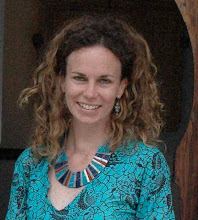
When you arrive at Pekiwa’s atelier on the Matola River, about 20 km from Maputo, you know that you have arrived at a residence that is unmistakably that of an artist. Although the space is still a work in progress, it is immediately evident why Pekiwa has chosen to live just far enough away from the noise and confusion of the capital city in a natural paradise built by the artist’s own hands.
With his modest home and studio residing on the same property, Pekiwa has transformed his large plot of land into what functions essentially as an outdoor sculpture gallery. Amidst native plants and artistic landscaping, visitors are warmly welcomed and left to appreciate the wide range of sculptures gracing the property.

If Chissano and Govane represent the old, Modernist guard, perhaps Pekiwa and his works—which are typically recycled and found objects sculpted with a Modern aesthetic—herald a new Postmodern, generation. But Govane, a well-respected sculptor in his own right, didn’t react favorably when he learned that his son possessed a similar inclination to create art from wood. Fearing disapproval from his father, an adolescent Pekiwa used to pick up tools when his father was out tending his crops and began to teach himself to sculpt. Upon seeing 
Pekiwa has many stories to tell about the battles he had with his father (including the time when his father cut his nascent dreadlocks), but it was not until Govane finally threw Pekiwa out of the house at age 18 that he began the process of “freeing himself from the influence of his father” and defining his own artistic identity.
Shortly after striking out on his own, Pekiwa abandoned his given name, Nelson Augusto Carlos Ferriera, and put together different sounds he liked to form “Pekiwa,” the artistic name by which he has been known ever since.
Pekiwa says he’s happy that people now tell him that “they look at his work and can identify it as his.” Although he also sculpts on sandalwood and other woods, Pekiwa is one of the few, if not only, sculptor in Mozambique working with recycled and found objects. He says that these materials—aging wooden train tracks, and old doors and windows frames—“transmit messages because of their historical richness.” He’s fascinated by “transforming something old into something new, but allowing the old to retain its rustic integrity.”

It’s not only the relics of days gone by that inspire him, but also the people of Ilha, the colors, and the differences from his native province of Maputo. Unlike his father’s generation which expressed suffering, 

Visits to Pekiwa’s atelier can be arranged by contacting pekiwa77@yahoo.com.br or +258-82-8958770.


No comments:
Post a Comment